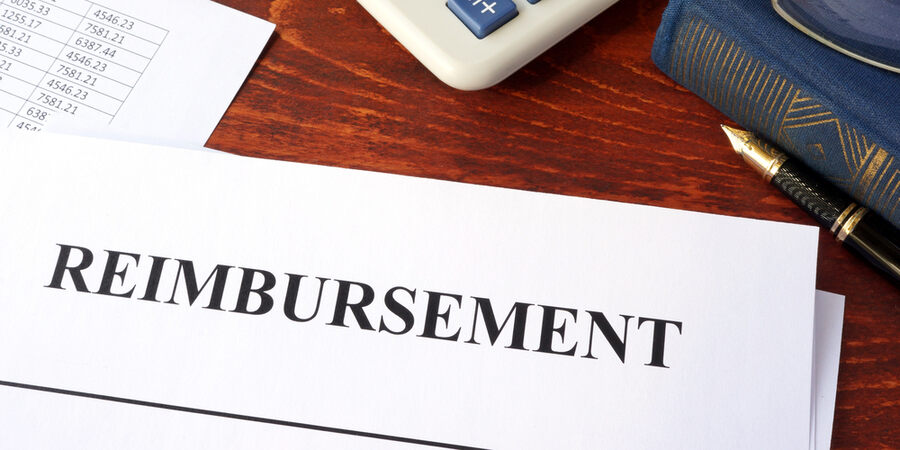Employees who incur out-of-pocket business costs are reimbursed by their employer under an accountable plan. Employees will not see an increase in their W-2 salary or have their withholdings changed when an employer reimburses them for expenses that qualify under their accountable plan. Instead, these expenses will be listed on the company’s tax return as though the company had made the payment directly.
How does an accountable plan work?
Compared to a non-accountable plan, an accountable plan is different. Reimbursement for expenses is regarded as part of an employee’s compensation. Therefore, they are subject to withholding and is required to be reported on a W-2 form if a company’s reimbursement policy does not adhere to IRS requirements for an accountable plan.
In accordance with IRS regulations, expenses incurred as part of an accountable plan are refunded if they are related to the business and are properly recorded. In addition, any excess payments made over actual costs must be reimbursed to the business within a certain time frame.
Employees may incur costs for travel, meals, lodging, entertainment, or transportation as part of their job duties. They are required to provide a complete accounting of expenses with supporting documentation to promptly return any unused reimbursement.
Employers must be able to show that their plans adhere to the standards of an accountable plan, even though they are not required to disclose the details of their plans to the IRS.
What are the features of an accountable reimbursement plan?

1. Business connection
The costs must be incurred while performing work-related duties. Personal expenses are not considered business expenses and cannot be deducted or reimbursed. Personal expenses include living and family costs.
An expense that is split between business and personal must be deducted accordingly. A typical illustration is a personal vehicle that is also used for work-related activities. The cost of using the car for business purposes is deductible (or reimbursable).
2. Adequate accounting
Workers have to provide adequate accounting within a reasonable amount of time. What does “adequate accounting” mean? Employees must demonstrate that the money was used for proper business purposes.
In most cases, receipts or other evidence from a third party is sufficient. When providing meals or entertainment, the employee should note the business purpose, the reason for the expense, the date, the location, and any other parties involved if it is not obvious from the document’s face.
3. Excess reimbursement
After receiving a statement from the employer listing any outstanding advances, any excess reimbursement must be returned within 120 days. These are IRS guidelines, and an organization is free to enact more stringent regulations. For instance, rather than the IRS $75 cap, the company might demand substantiation for expenses over $25.
The business may also pay for mileage at a rate that is lower than the IRS’s standard rate. Employees are not taxed on the reimbursements received under an accountable plan, and they are not reported on their 1040 tax returns.
Suggested Read: How To Get A Frequent Flier Number And Its Benefits?
How to implement an accountable plan?
1. Create a written accountability strategy
Establishing a written plan outlining the guidelines and processes for reimbursing business expenses is the first step. Information like which expenses qualify for reimbursement, the supporting paperwork needed to support the reimbursement, and the due date for expense reports should all be included in the plan.
2. Informing staff about the accountable plan
Ensure that every employee who will be on business travel is aware of the plan and is familiar with the guidelines for submitting expenses. Give instruction on how to submit expense reports and what paperwork is needed.
3. Establish a procedure for reporting expenses
Establish a procedure for employees to follow when submitting their expense reports, along with any receipts or other supporting documentation. A software system, paper forms, or a combination of both may be used in this process.
4. Examine and accept expense reports
Establish a person or group in charge of examining and approving expense reports. They should make sure the documentation is accurate and complete, and that all costs are eligible for reimbursement.
5. Pay employees as soon as possible
As soon as an expense report is accepted, make sure to promptly pay the employee back. In accordance with the plan and any relevant corporate policies, reimbursement must be made.
6. Keep an eye on the accountability plan
Review the plan frequently to make sure it is operating as intended and streamlining the reimbursement procedure.
What is a non-accountable plan?
A reimbursement plan or policy that falls short of all the criteria for an accountable plan is considered non-accountable. A non-accountable plan’s payments constitute income for the employee and must be deducted from wages with the appropriate tax withholdings. For some things, an employer may have an accountable plan, and for others, a non-accountable plan.
How does a non-accountable plan affect taxes?
Any plan that does not meet the criteria to be an accountable plan is considered a non-accountable plan. They have significant tax disadvantages for both employees and businesses, despite being perfectly legal.
Employee reimbursements received under a non-accountable plan are considered wage income. Additionally, this implies that the company will be liable for payroll taxes and will need to deduct taxes from these reimbursements.
Your business and your employees will benefit from more advantageous tax treatment on reimbursements if you establish an accountable expense reimbursement plan.
Conclusion
Implementing an accountable plan for business travelers can give employers a tax-efficient way to reimburse staff for legitimate business expenses while also assisting in cost management. Companies can make sure that their accountable plan is effective and efficient by creating a written plan, informing employees, setting up a procedure for submitting expenses, reviewing and approving expense reports, promptly paying employees, and monitoring the plan.
Suggested Read: Everything You Need To Know About Flexible Flights
Accountable Plan FAQs
What is accountable plan?
It means the expense reimbursement that have tax benefits. In such expenses employees get the reimbursement and employer get the tax benefits.
Can employers benefit from non-accountable plan?
No, it does not offer any tax benefits.
Should employers delay reimbursement of accountable expenses?
No, one should reimburse it and keep a track of them as soon as possible.



